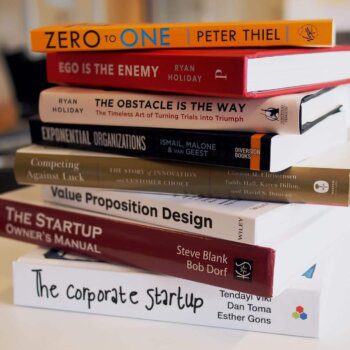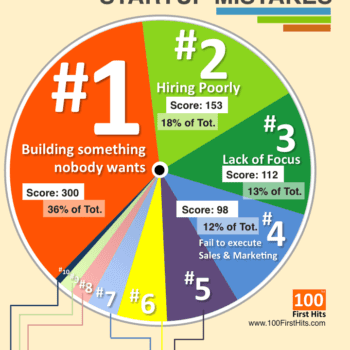New research by the Reuters Institute and Oxford University looks at the effect of tools such as aggregators, search engines and social networks on people’s information diet, concluding that their use tends, in general, to generate more diverse sources than when we simply visit our preferred media pages.
A conclusion that, in principle, would challenge Eli Pariser’s well-known theories regarding the so-called “filter bubble”, defined as “the state of intellectual isolation that can result from personalized searches when a website’s algorithm selectively guesses what information a user would like to see based on information it has about them, such as location, past click behavior and search history.” According to the study, people who tend toward more sophisticated information behavior tend to exhibit more diverse information diets that reflect more pluralistic viewpoints.
For more than two decades, I have been recommending generations of entrepreneurs and executives to use specific tools to stay informed. Over the years, my advice has also evolved: now I tend to propose a three-layered system consisting of a feed reader, recommendation algorithms and a social network, subject to specific usage protocols, and even going beyond an individual dimension to a corporate scale, particularly so as to influence the development of organizations with a greater tendency to innovate.
My experience is that simply recommending tools does not work: in general, people try them, but in the absence of usage protocols, they soon revert to old habits. We should bear in mind that most of the time, unless encouraged to do so, we tend not to seek diversity in our information diet.
What tools do I tend to recommend and based on which protocols? The answer, despite the fact that I’m always trying out new tools, has remained unchanged for some years now:
- News aggregator: Feedly. I can’t find any other comparable tool, both in terms of structure, continuous product improvement, and an accessible development team. What do I do with Feedly? I choose a number of sources I do not want to miss (here are mine, which would be probably too many for non-academics), and opt for a generally spartan presentation so as not to waste time (I read almost everything in the Title-Only view or, at most, in Cards). I would recommend incorporating sections of newspapers and pages of the subject you are interested in and to which you have access (another advantage of the academic world is being able to read the vast majority of media via the institution’s subscriptions) into Feedly while trying to maintain a balance of perspectives. From there, start debugging according to the statistics that the application itself generates, i.e., the frequency with which each publication leads us to find news that interest us, regularly eliminating or incorporating sources. It is advisable to start with few sources: experience shows that overly ambitious users are soon overwhelmed by the flood of news and tend to give up. It is essential to resort regularly to the “Mark all as read — Older than one day” option if you do not want to be avalanched. We want a tool that helps us read more and better, not an instrument of torture.
- Recommendation algorithm: I haven’t found anything better than Refind. In fact, it works even better when combined with Feedly. After setting up an account and incorporating its button in your browser (essential), you add the news you find interesting in Feedly or in other sources to the “Reading List”, and if after reading them you find them particularly good, to “Made me smarter”. Refind prepares a list based on the articles you add to your collections (which remain stored and allow a later search with a very good search tool), according to your preferences, of between 5 and 20 algorithmically recommended news items each day, which will be delivered to you when you want, and which are supposed to be, after a short period of debugging, news that you should not miss on the topics that interest you. The recommendation algorithm is based on topics, not points of view. If you see that you are taking advantage of Feedly, you can exclude in Refind the sources that you already follow there because you can assume that you have already seen them, or even go directly into the Refind algorithm and assign more or less weight to your topics. From there, you just have to worry about logging in every day, either via the message it sends to your inbox or on the page itself. In my case, I keep the Feedly and Refind pages permanently pinned in my browser.
- Social networks: choose a social network that you are not going to use to follow friends and acquaintances, and customize it into a news reading tool. The most common among my students is LinkedIn, which includes a recommendation of the news that members of your network are reading. My favorite is Twitter: stop following friends, family or acquaintances (there are other networks for that), and start following people who generate interesting publications on the topics you want to follow. You can use the “Topics to follow” tool and choose accounts from it, or start with some users that you know share things that interest you, and progress from their lists. Users, not media. If you’re considering following a media outlet on Twitter, you’re doing it wrong: the media site is Feedly. Twitter’s purpose is to add that layer of user recommendation: those topics that might otherwise escape your attention.
- Publishing: the fourth layer is not so much for personal as corporate use, and the best tool I’ve found for this is Flipboard; not for reading, but publishing. If you install its “Flip it” button in your browser and get used to using it every time you find an article interesting, you can create a magazine and share it with the rest of the organization: if you give other users permission to add articles and several of them recommend the same news item, the tool takes care of eliminating duplicates. You will be generating a corporate magazine or radar in a very nice format that will allow the whole organization to share sources and articles, and align around common topics of interest, which drives innovation and allows yo to know what the competition is up to.
If these tools don’t improve your information diet, make better use of the time you spend getting information and extract more value from it, it’s because you don’t want to. Again: it’s not a matter of simply opening accounts, installing the tools and thinking that you’ve done what you had to do: staying well informed requires will, discipline and, over all, creating and nurturing a new habit. But I can assure you, and not just based on my experience, that it is really worth it.





























